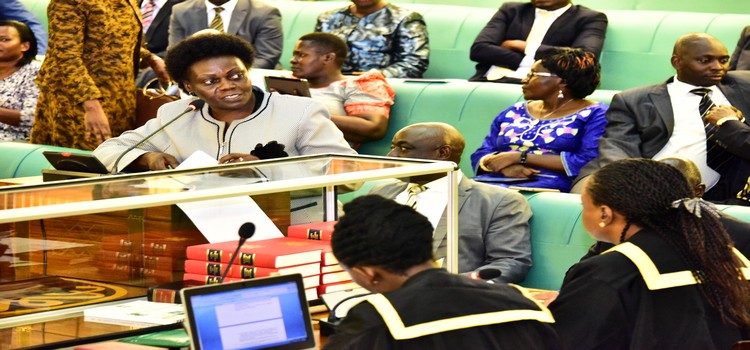
Government will set up cancer treatment centres in Arua and Mbale referral hospitals to treat different types of cancers prevalent in the country.
In addition to the centres in Arua in West Nile and Mbale in eastern Uganda, there is another cancer treatment centre already operational in Mbarara Regional Referral Hospital, all of which will decongest the Uganda Cancer Institute in Mulago.
Responding to a question asked by Mbale Municipality MP Hon. Jack Wamanga Wamai, the Minister of State for Health (General Duties), Hon. Sarah Opendi, said government had taken steps in line with the World Health Organization recommendation to adopt a planned response to the cancer crisis by initiating a Comprehensive National Cancer Control Programme.
“These facilities aim to help in decentralizing cancer treatment services as well as decongest the Uganda Cancer Institute,” said Opendi during the plenary sitting of Parliament on Wednesday, 26 September 2018.
Wamanga Wamai asked the Minister to explain what the government was doing to mitigate the rampant increase of cancer cases in the country.
Members also asked the Minister about efforts by the Ministry of Health to extend early detection of cancer to school going children and mothers in rural areas.
“When a person is screened and found to have cancer, they are usually told that it is at an advanced stage. That is why very many of our people are dying of cancer,” said Hon Gilbert Olanya (FDC, Kilak South County).
The Minister said that the Comprehensive National Cancer Control Programme would also include comprehensive care delivery with a National Cancer Centre of Excellence at the centre, a comprehensive cancer service network, cancer research, and a national policy on cancer.
The Minister said that the Ministry acknowledges the burden and threat of cancer and other non-communicable diseases, with a major commitment to address them.
Opendi however said that many Ugandans had ignored advice from the Ministry and partner health programmes to go for early cancer screening, adding that some had instead resorted to traditional methods to try treat the condition.
“We have trained midwives across the country to detect cancer [of the cervix], such that one does not need to move to the cancer institute or a regional referral hospital to carry out cancer screening,” Opendi said.
She appealed to parents to vaccinate their children against Hepatitis B, which she said poses a risk of cancer of the liver. She added that vaccination is part of the routine childhood immunization schedule that all children are supposed to complete by their first birthday.
Opendi also said that government had rolled out the Rotavirus vaccine into the routine immunization schedule in June 2018, to protect children under five years from diarrhoea.
She said that the Rotavirus infection was the leading cause of diarrhoea in children under five and could sometimes lead to death. She said the Ministry of Health had embarked on a sensitization campaign to enlighten the population and health workers about appropriate administration of the vaccines.
On fistula, in response to a question by Hon. Grace Kasande (Rubirizi district), Minister Opendi said government interventions to procure fistula repair equipment for health facilities across the country and training of teams for fistula repair, had resulted in progressive reductions in the prevalence of condition.
